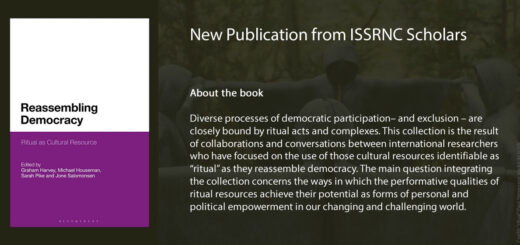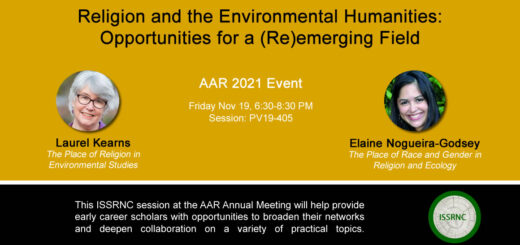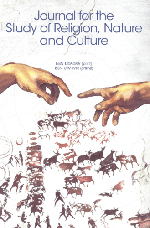Lucas Johnston on Religious Studies Syllabus
We are excited to share a recent post from ISSRNC board member Lucas Johnson. His piece in the Bulletin for the Study of Religion reflects on issues of teaching about religion and the content of religious studies courses.
Here is an excerpt of his post:
One of the upper level courses in my regular rotation is “Religion and Ecology,” although I’ve changed the course content with each iteration. In the most recent version, the description reads:
This course explores the complex relationships between ecosystems, religions and cultures. Human cultures and their religious production have always depended on the natural world not just for physical and spiritual subsistence, but also as a source of inspiration or veneration, for metaphors of the sacred, and for exploitation. This course will: a) utilize an interdisciplinary approach to analyze arguments for the emergence of religion as a response to ecological and social constraints; b) survey how various cultures have imagined the natural world and their ethical obligations toward it (if any), including the development of new nature-based religious movements; and c) review arguments for and against the notion that religion is evolutionarily adaptive.
As with all of my courses, I imagined a set of learning outcomes, skills that students should have by the end of our semester together. In this case, I specified that students should be able to understand the ways in which religions shape understandings of their habitats and relationships to them; conversely, that they should be able to recognize the ways in which religious expressions are channeled and constrained by their habitats; and that they ought to be able to identify and interrogate the always political deployment of religious justifications for the use, abuse, and distribution of resources.
Read the entire post in the Bulletin for the Study of Religion.












